Fiddling While Wall Street Burns
Obama shows more promise than McCain, if only because he correctly sees deregulatory zeal as a culprit. But Obama's economic strategy simply can't be implemented now: He wants to spend on necessary investments such as health care, but would have no money to do it.So Alan Greenspan thinks this could be among the worst of the worst, a financial crisis that ranks as “a once-in-a-half-century, probably once-in-a-century type of event.”
Greenspan was speaking Sunday on ABC on the eve of the stock-market plunge that followed the demise of Lehman Brothers and the sale of Merrill Lynch to Bank of America. These in turn followed the federal seizure and expected taxpayer bailout of Freddie Mac and Fannie Mae, which followed the federally engineered, taxpayer-backed rescue of Bear Stearns by JP Morgan Chase. When Greenspan says this all could become a once-in-a-century type of event, does he mean to invoke the Great Depression?
I hope not. I want Greenspan to be wrong again — just as he was in 2005 when he said there was no speculative housing bubble but just “froth” in a few local markets.
But the more fundamental reason I hope Greenspan is wrong is because a crisis that approaches the worst in a century would mean that millions of Americans would become homeless, starving and so desperate for help that — gasp! — we might need a new New Deal. And we can’t afford a new New Deal in good part because Greenspan in 2001 gave his approval to President Bush’s signature tax cuts. Enactment of these tax cuts was an early marker on the road to the great unraveling.
Suddenly, everybody is talking about “risk,” as in the risk of letting venerable Wall Street institutions crumble right into New York Harbor. And all this talk about risk recalls that much-maligned political phrase of a few presidential campaigns ago, “risky scheme.”
That is what Al Gore called the enormous tax cuts proposed by candidate George W. Bush. Gore thought they were risky because rather than using what was then a federal budget surplus to bolster Social Security for the coming retirement of baby boomers, the tax cuts would instead lead us back into deficits and increasing debt.
Gore wanted to put the surplus in a “lockbox” — sort of like those savings accounts that average Americans are supposed to build up for themselves, but, to the enduring consternation of sages such as Greenspan, they never seem to build. Anyway, the idea was to save for a rainy day — like for example, the cyclone Greenspan is now describing as a once-in-a-century type of event.
So now we have had the tax cuts, we have two wars that are being financed on credit, and we have an economic downturn that is reducing tax revenues and increasing safety-net spending. We are enduring a wipeout of billions in home equity that Americans came to count on as a cash reserve as their incomes stagnated. Now the tumult on Wall Street has even the sharpest of the sharks unable to foretell what might come next.
As a matter of political and economic necessity, Congress probably will enact a second economic stimulus package, cost unknown. The price to be paid by taxpayers for the potential bailout of Freddie Mac and Fannie Mae is still uncertain, but you can bet it is a heck of a lot more than many, many bridges to nowhere.
Which brings us up to date. The economic “debate” the two presidential candidates are having is only slightly less idiotic than the back-and-forth in 2000 over the meaning of “risky scheme.” John McCain is laughable when he says, as he did on CNN recently, that a failure to restrain spending is “the reason our economy is in trouble today.” He talks about an economic commission such as the panel that studied the 9/11 terrorist attacks, but in truth, the White House and Congress haven’t implemented most recommendations of the 9/11 commission. And that’s without an army of financial-industry lobbyists picking apart legislation that might emerge from an economic panel.
Barack Obama shows more promise, if only because he — like most Democrats looking in hindsight — correctly sees deregulatory zeal as a culprit. But Obama’s economic strategy simply can’t be implemented now: He wants to spend on necessary investments such as health care, but would have no money to do it. He’s not willing to impose higher taxes on anyone making less than $250,000 — nor should he do so in the midst of such economic doldrums.
So it looks an awful lot like we will be flying blind, which, come to think of it, seems a strategy even Greenspan has fallen back upon.
Marie Cocco’s e-mail address is mariecocco(at)washpost.com.
© 2008, Washington Post Writers Group
Your support matters…Independent journalism is under threat and overshadowed by heavily funded mainstream media.
You can help level the playing field. Become a member.
Your tax-deductible contribution keeps us digging beneath the headlines to give you thought-provoking, investigative reporting and analysis that unearths what's really happening- without compromise.
Give today to support our courageous, independent journalists.
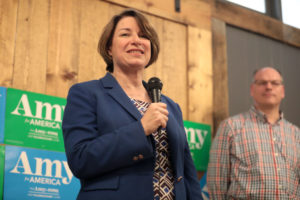
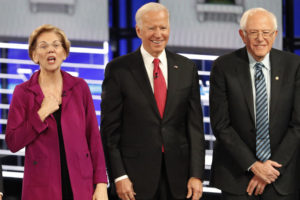
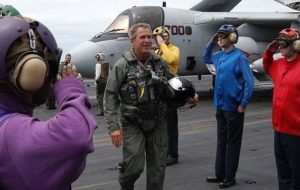
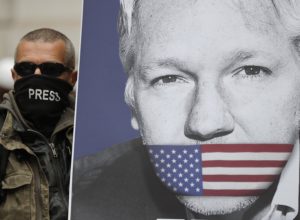

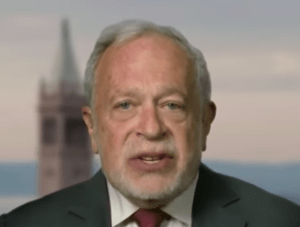
You need to be a supporter to comment.
There are currently no responses to this article.
Be the first to respond.